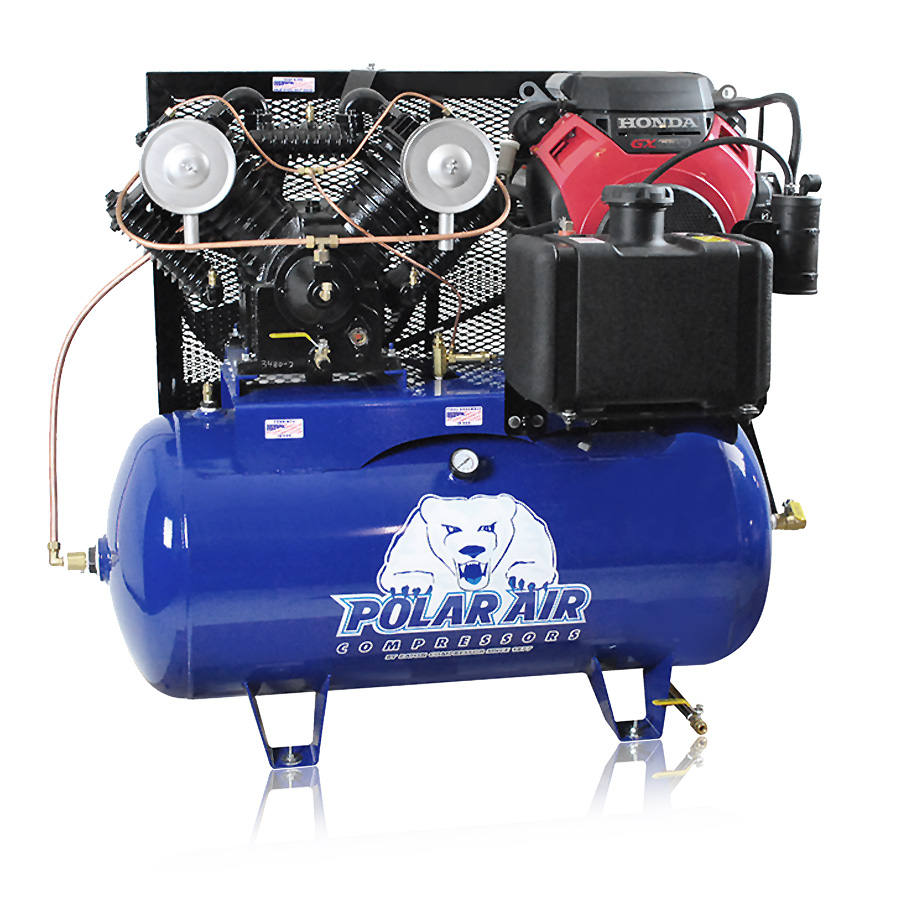Introduction
Contents
A gas air compressor is a device that uses a gasoline engine to power an air compressor. Gas air compressors are often used in industrial and construction applications, as they are more powerful than electric air compressors. They are also portable, making them ideal for outdoor applications such as demolition, sandblasting and paint spraying. In this article, we will discuss the different types of gas air compressors, their advantages and disadvantages, and how to select the right gas air compressor for your needs.
Types of Gas Air Compressors
1. Reciprocating Gas Air Compressors – Reciprocating gas air compressors are the most common type of gas air compressor. They have a reciprocating piston that is powered by a gasoline engine to draw air into a cylinder and compress it. These compressors are designed for heavy-duty use and have a high CFM rating. They are typically used for industrial and construction applications, such as sandblasting and paint spraying.
2. Rotary Gas Air Compressors – Rotary gas air compressors are powered by a gasoline engine and use a rotary screw action to compress air. These compressors are quieter, more efficient and require less maintenance than reciprocating gas air compressors. They are most often used in automotive and industrial applications, such as air grease guns, tire inflation and air tools.
3. Portable Gas Air Compressors – Portable gas air compressors are smaller, lighter and more affordable than other types of gas air compressors. They are ideal for outdoor applications, such as demolition, sandblasting and paint spraying.
Advantages and Disadvantages of Gas Air Compressors
Advantages:
1. Gas air compressors are powerful and can provide a high CFM rating.
2. They are portable, making them ideal for outdoor applications.
3. Gas air compressors are more reliable than electric air compressors and require less maintenance.
4. They are cost-effective and can save you money in the long run.
Disadvantages:
1. Gas air compressors are noisy and produce emissions.
2. They are heavier and more expensive than electric air compressors.
3. Gas air compressors require more maintenance and may require frequent oil changes.
How to Select the Right Gas Air Compressor
When selecting a gas air compressor, it is important to consider your needs and budget. Firstly, determine the size of the air compressor you need. If you are using it for automotive or industrial applications, you will likely need a higher CFM rating. Secondly, consider the portability of the compressor. If you need to move the compressor frequently, a portable model may be more suitable. Finally, consider the cost of the compressor and its maintenance requirements. If you are on a tight budget, an electric air compressor may be a better option.
Conclusion
Gas air compressors are powerful and portable, making them ideal for industrial and construction applications. They are cost-effective and require less maintenance than electric air compressors. When selecting a gas air compressor, consider your needs and budget to ensure you select the right model for your requirements.

